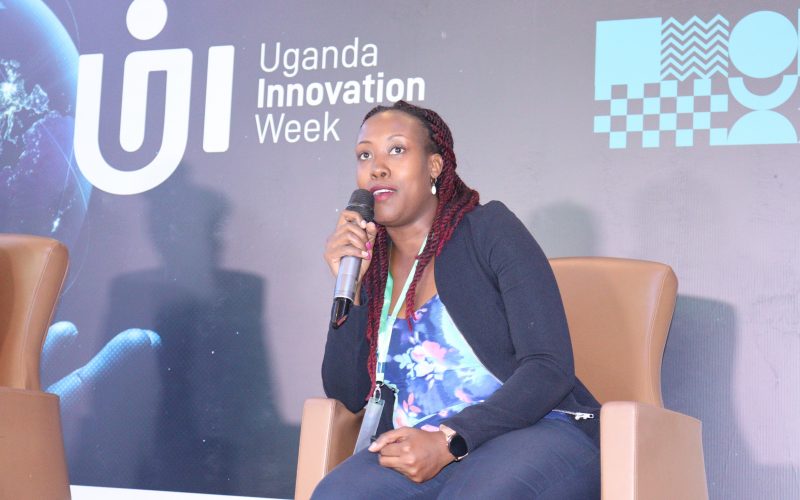By Mark Kawalya
A particular journey is all too familiar to versatile Fresh Kyenyanja founder Isabella Katwesigye. This is a journey she has taken many times. A journey that starts in Kampala leaves the bustling streets of the busy city and heads out of town before gradually fading into the serene shores of Lake Victoria in the ever-sleepy quietness of Entebbe town forty minutes later. These journeys were instrumental to Katwesigye because they were necessary for her to replenish her supply of fresh fish stocks for her business. The name Fresh Kyenyanja is coined from two words, which are loosely translated to fresh fish. Katwesigye chose the name for her fresh fish and ready-to-eat fish businesses due to the local appeal that the name would have with everyday Ugandans.
Covid-19 Pandemic: The Start of It All
The story of Isabella’s entrepreneurial journey at its core is a tale of how she managed to harness culinary brilliance while building on a foundation of unwavering drive as key launchpads to drive Fresh Kyenyaja to the heights the business currently enjoys.
Isabella Katwesigye is at the helm of this story. She is the CEO and proprietor of Fresh Kyenjanja, a business that has transformed the way Ugandans perceive and consume fish. The business has grown into a culinary empire that tantalizes taste buds while providing Ugandans with alternative avenues for consuming their daily protein requirements.
Isabella initially worked in the logistics industry for companies like Aramex and Bollore for more than 10 years until the pandemic made her question her work. Although she navigated the intricacies of supply chains and deliveries with these large companies, deep down, she wanted to try her hand at business. As is the case for many new entrepreneurs, she initially had no idea what business to start.
Business Ideas From a Meal of Fish and Chips
The year 2020 ushered in the unprecedented challenges of the COVID-19 pandemic. The financial stability of her family was impacted, like many households. Her husband, Mark Nahabwe, had some of his income streams dry up. The mother of two thought long and hard about a way out for the family. Her employer at the time instituted tighter targets for the entire team while cutting their salaries. It was in these testing times that fate, in the form of her cousin Albert, intervened.
“Albert, recognizing that I was feeling stuck in a rut, invited me out for a meal of fish and chips to a landing site in Entebbe, where he runs an ice business. I think he hoped this would be a good distraction for me from all the life pressures I was experiencing at the time.” Katwesigye says.
Unbeknownst to her, this would be the start of her journey to becoming a fish mongress, as she often likes to joke. After touring the landing site with Albert, they sat down to their meal. “I previously had a negative attitude towards fish stemming from how it is sold in Kampala on roadsides and markets in often unsanitary conditions. But I was immensely surprised at how clean and fresh the fish we had that day was. It was like nothing I had eaten before. The true shocker for me was the price of the meal, which was so affordable that I was dumbfounded.”
Since she had been looking for a business to start, she decided to buy five fresh fish and go back home with them to resell them. Albert got her an ice box for the fish, and she headed back to Kampala with a heart filled with optimism. She called some of her friends while driving back to Kampala and tried to sell some of the fish to them. She also offered to drop it off at their homes, and all the fish were taken in a short while.
Armed with the profit she had made, she went back to the landing site the next day and loaded more fish, which she sold off in the same manner. “I got very good reviews from those who bought the fish, which encouraged me even more. I scheduled the business to deliver the fish three days a week to homes in estates, which was easier since I sold to more people in a small geographical area.”
The Door-to-Door Fish Mongress
Isabella’s commitment to freshness was unwavering, and armed with an icebox, her door-to-door deliveries introduced households to a new standard of fish quality. As word of mouth spread, so did her clientele. What began as a modest venture to make some extra income soon blossomed into Fresh Kyenjanja, a trademark now synonymous with the freshness of organic fish from the bounty of Lake Victoria.
Although the business had grown by leaps and bounds, Isabella was looking to diversify from selling fresh fish as the only product. “I wanted to add value to the fish we were selling. We started by doing simple things like washing the fish, cleaning it out, and cutting it into manageable portions. We also packaged the fish in zip-top bags, allowing easy use and storage.”
By listening to feedback and client pain points, she learned that some clients wanted fillets while others wanted the fish cooked, which she started doing. Later, Katwesigye started getting orders for fish fingers, which she had no idea how to prepare. Armed with a little research and watching countless video recipes, she made her first batch and filled out the client’s order. “At first, I was not very confident about what the client would say, but later she gave us good feedback, which we took as a green light to include fish fingers in our product line.
Diversifying the Business
Currently, Fresh Kyenyanja has 12 products of fish, and the company processes its own fish. Today, the firm processes 250 orders per week of fish or fish-based meals, up from the 50 orders per week that they had previously. The firm has celebrated only 3 years, despite the milestones it has managed to achieve. The firm is looking at exporting and boosting the shelf life of the products.
Fresh Kyenjanja was chosen to be part of the NSSF Hi-Innovator program, a program that gives training and funding to startups that demonstrate the viability of an already-running business. “This was more than just financial support for us. It was a gateway to partnerships with industry leaders like Mastercard and NSSF. The grant provided not only resources but also mentorship, which propelled Fresh Kyenjanga into a new era of growth.” Katwesigye says.
With enhanced processing capabilities, the introduction of a restaurant, and a repertoire of twelve well-processed fish products, Fresh Kyenjanja has become a culinary powerhouse in a short time.
At the heart of Fresh Kyenjanja’s success lies Isabella and her team, which, once made up of three, has since grown into a close-knit family of twelve. Their commitment to food safety and hygiene ensures that every product leaving Fresh Kyenjanja’s doors is of exceptional quality. They embody Isabella’s ethos and have become the backbone of the business.
Lessons Learned from her Journey
While reflecting on her journey, Isabella emphasizes the importance of community. Fresh Kyenjanga, once a door-to-door service, now caters to expatriates, thanks to networking at farmers’ markets and international schools. The Business Leaders Network at her church has been a source of inspiration and mentorship, guiding her through the nuances of entrepreneurship.
Isabella’s story is one of transformation, from a logistics expert to a culinary entrepreneur. Fresh Kyenjanga’s success is not just measured in profits but also in the people it touches and the communities it nurtures. In her words, “The business grows beyond you.”
With a heart full of gratitude for her team and the support she has received, Isabella Katwesigye continues to craft fish-based culinary delights, one fish at a time, reminding us all that resilience, innovation, and community are the key ingredients to entrepreneurial success. As Fresh Kyenjanga’s aroma wafts through Kampala and beyond, it carries with it the essence of determination, the spirit of community, and the taste of a dream fulfilled.









Wow! Thank you for this Mark.